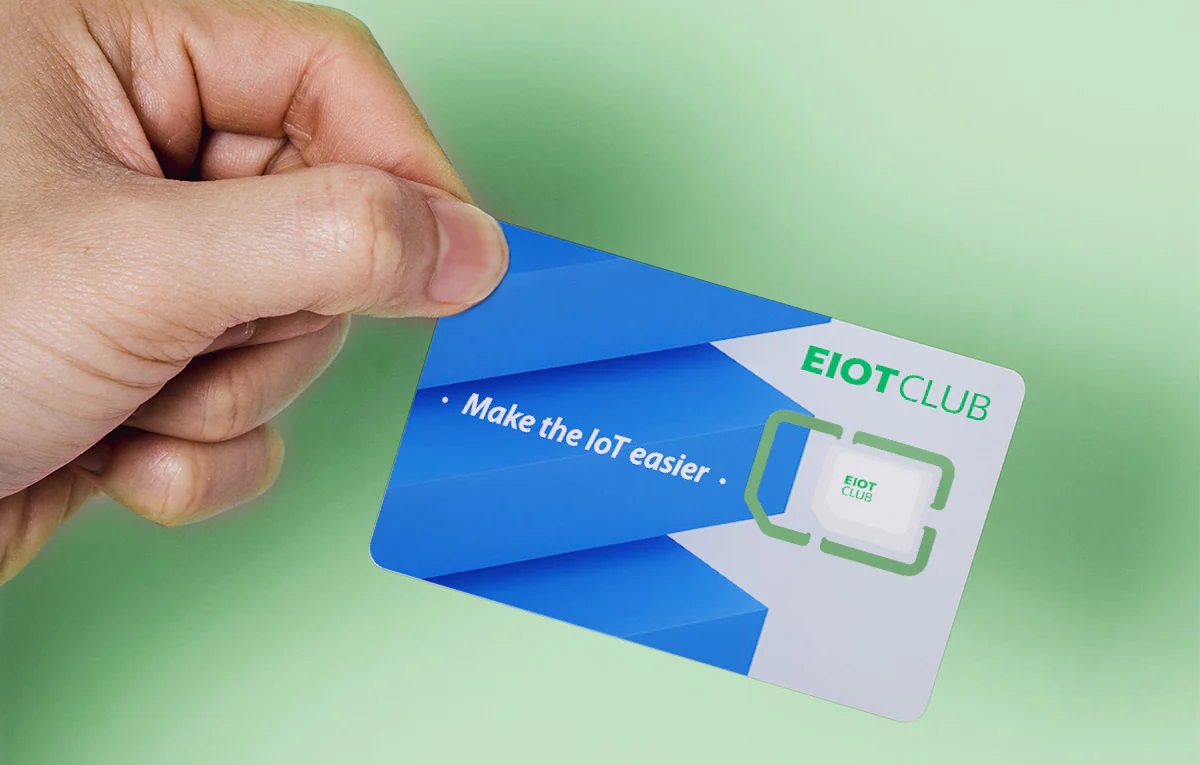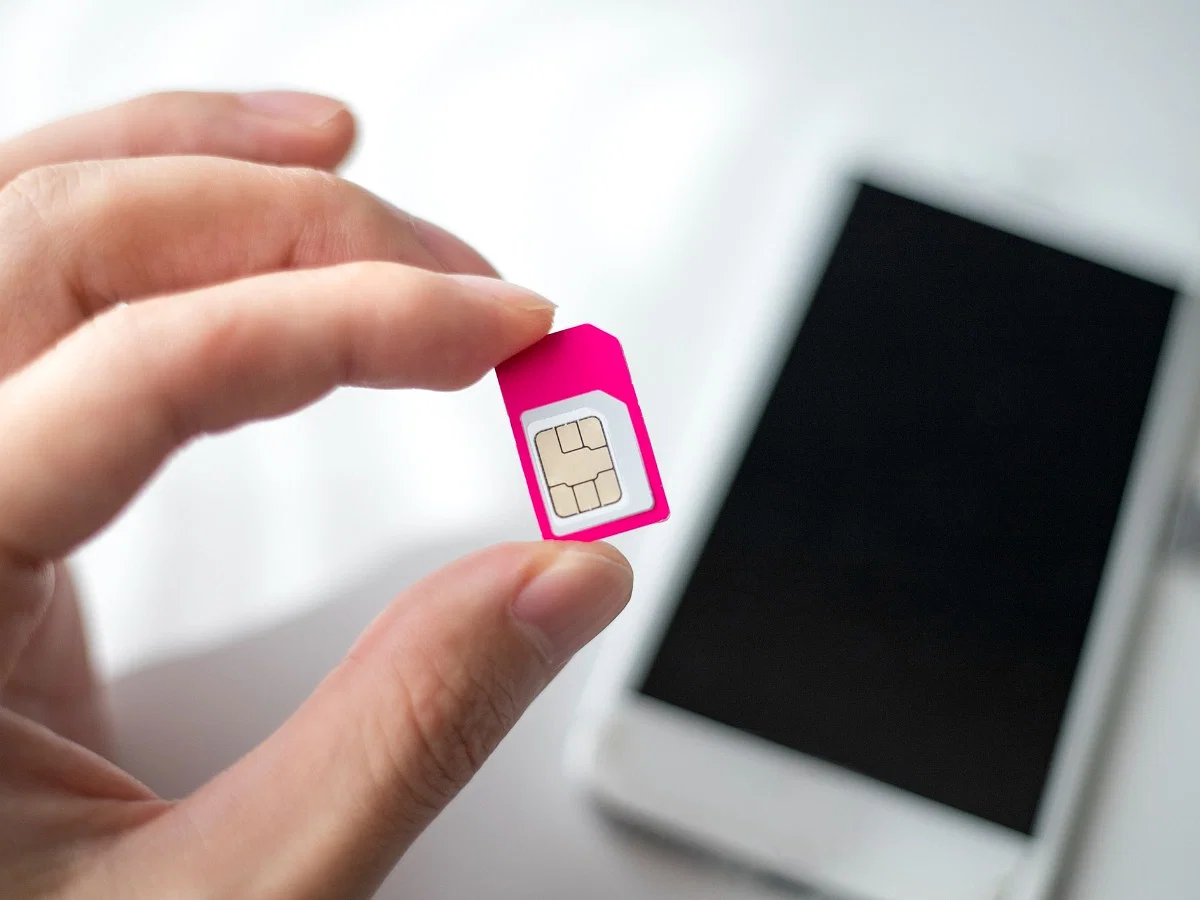Introduction
In today's fast-paced world, staying connected is more important than ever. Whether it's for business, travel, or personal use, having a reliable mobile communication system is essential. One of the most popular and versatile options for mobile connectivity is the prepaid SIM card. Understanding how prepaid SIM cards work and their benefits can help individuals make informed decisions when it comes to staying connected on the go.
Prepaid SIM cards have revolutionized the way people use mobile devices, offering flexibility, affordability, and convenience. As technology continues to evolve, the demand for seamless and cost-effective mobile communication solutions has grown exponentially. In this article, we will delve into the inner workings of prepaid SIM cards, exploring their functionality, advantages, and potential drawbacks. By gaining a comprehensive understanding of prepaid SIM cards, readers can make informed choices about their mobile connectivity needs and optimize their communication experience.
Whether you're a frequent traveler, a budget-conscious consumer, or someone seeking flexibility in mobile plans, prepaid SIM cards offer a myriad of benefits. From cost-effective data and call options to the freedom of choosing your preferred network provider, prepaid SIM cards have become a popular choice for individuals seeking control and versatility in their mobile communication. As we delve into the mechanics of prepaid SIM cards and the ways in which they can enhance mobile connectivity, readers will gain valuable insights into leveraging this technology to meet their specific needs.
In the following sections, we will explore the fundamental principles behind prepaid SIM cards, uncovering the mechanics that enable users to stay connected on their terms. Additionally, we will examine the advantages and potential limitations of using prepaid SIM cards, providing a comprehensive overview of this mobile communication solution. By the end of this article, readers will have a deeper understanding of how prepaid SIM cards work and how they can be utilized to optimize mobile connectivity.
What is a Prepaid SIM Card?
A prepaid SIM card, also known as a pay-as-you-go SIM card, is a small, portable chip that is inserted into a mobile device to enable communication services. Unlike traditional postpaid plans, where users are billed at the end of a billing cycle for the services they have used, a prepaid SIM card requires users to pay for services upfront. This payment is typically in the form of purchasing credit or a recharge voucher, which is then loaded onto the SIM card to enable usage.
Prepaid SIM cards are widely used by individuals who seek flexibility and control over their mobile communication expenses. These cards are available from various mobile network providers and can be easily obtained at retail outlets, convenience stores, and online platforms. Upon acquiring a prepaid SIM card, users are required to activate it by providing basic personal information and selecting a preferred mobile number.
One of the key features of a prepaid SIM card is its flexibility. Users have the freedom to choose from a variety of prepaid plans that best suit their communication needs, including options for voice calls, text messaging, and data usage. Additionally, prepaid SIM cards do not require a long-term commitment or credit checks, making them an attractive option for individuals who prefer a pay-as-you-go approach to mobile communication.
Prepaid SIM cards are also popular among travelers, as they offer the convenience of using local mobile services without the need for a long-term contract or roaming charges. This flexibility allows users to stay connected while abroad without incurring exorbitant fees typically associated with international roaming.
In summary, a prepaid SIM card is a versatile and cost-effective mobile communication solution that offers users the freedom to manage their expenses and usage on their own terms. With its ease of accessibility, flexibility, and absence of long-term commitments, prepaid SIM cards have become a popular choice for individuals seeking control and convenience in their mobile communication experience.
How does a Prepaid SIM Card Work?
A prepaid SIM card operates on a straightforward principle, enabling users to access mobile communication services by preloading credit onto the card. The functionality of a prepaid SIM card is rooted in its ability to store user data, including the mobile number, account balance, and network-specific information. When a user inserts a prepaid SIM card into a compatible mobile device and activates it, the SIM card establishes a connection with the network provider, allowing the user to access voice, text, and data services.
Upon purchasing a prepaid SIM card, users are required to load credit onto the card by purchasing a recharge voucher or electronically topping up their account. This credit serves as a form of payment for the mobile services used, including outgoing calls, text messages, and data usage. As the user consumes these services, the corresponding amount is deducted from the available credit on the prepaid SIM card.
The SIM card also stores information related to the user's account, such as the available credit balance and the validity period of the services. Additionally, the card contains security features that authenticate the user's identity and enable secure communication with the network provider. This ensures that the user's personal and financial information remains protected during mobile transactions.
When a user initiates a call, sends a text message, or accesses data services, the prepaid SIM card communicates with the network provider to authorize the requested service. The network provider verifies the user's available credit and service eligibility before allowing the requested communication to take place. This real-time interaction between the prepaid SIM card and the network enables users to utilize mobile services based on their available credit balance and the terms of their prepaid plan.
Furthermore, prepaid SIM cards are not tied to a specific mobile device, allowing users to easily transfer the card to a new device as needed. This flexibility adds to the convenience and versatility of prepaid SIM cards, making them an attractive option for individuals seeking control over their mobile communication expenses and usage.
In essence, the functionality of a prepaid SIM card is rooted in its ability to store user data, manage credit for mobile services, and facilitate secure communication with the network provider. By understanding the mechanics of how a prepaid SIM card works, users can make informed decisions about their mobile communication needs and optimize their usage based on their preferences and budget.
Benefits of Using a Prepaid SIM Card
Using a prepaid SIM card offers a multitude of benefits that cater to the diverse needs and preferences of mobile users. These advantages contribute to the widespread popularity of prepaid SIM cards as a flexible and cost-effective mobile communication solution.
-
Flexibility and Control: Prepaid SIM cards empower users with unparalleled flexibility and control over their mobile communication expenses. With the ability to choose from a variety of prepaid plans that align with their usage patterns, users can tailor their mobile services based on their specific needs, whether it's for voice calls, text messaging, or data usage. This flexibility allows users to manage their communication expenses according to their budget and usage preferences, without being tied down by long-term contracts or commitments.
-
No Credit Checks or Contracts: Unlike traditional postpaid plans, prepaid SIM cards do not require credit checks or lengthy contracts. This makes them an attractive option for individuals who prefer a pay-as-you-go approach to mobile communication. The absence of credit checks also means that users with varying credit histories can easily obtain and activate a prepaid SIM card, eliminating barriers to accessing essential mobile services.
-
Cost-Effective Communication: Prepaid SIM cards offer a cost-effective communication solution, allowing users to control their spending by only paying for the services they use. This pay-as-you-go model eliminates the risk of unexpected charges or overage fees, providing users with transparency and predictability in their mobile expenses. Additionally, prepaid plans often include competitive rates for voice calls, text messages, and data usage, enabling users to maximize the value of their communication budget.
-
Travel Convenience: For travelers, prepaid SIM cards offer the convenience of accessing local mobile services without incurring exorbitant roaming charges. By simply swapping their existing SIM card with a prepaid one upon arrival at a destination, travelers can enjoy seamless connectivity without being tied to long-term contracts or expensive roaming packages. This flexibility empowers travelers to stay connected while abroad and effectively manage their communication expenses.
-
Security and Privacy: Prepaid SIM cards provide a layer of security and privacy for users, as they do not require personal information such as credit card details or billing addresses for activation. This anonymity offers peace of mind for users who prioritize safeguarding their personal information while enjoying mobile communication services.
-
Device Compatibility: Prepaid SIM cards are compatible with a wide range of mobile devices, allowing users to easily transfer the card to a new device as needed. This versatility ensures that users can continue to access their prepaid services without being restricted to a specific handset, providing a seamless and convenient user experience.
In summary, the benefits of using a prepaid SIM card encompass flexibility, cost-effectiveness, travel convenience, security, and device compatibility. These advantages make prepaid SIM cards an appealing choice for individuals seeking control and versatility in their mobile communication experience.
Drawbacks of Using a Prepaid SIM Card
While prepaid SIM cards offer a range of advantages, it's important to acknowledge the potential drawbacks associated with this mobile communication solution. Understanding these limitations can help individuals make informed decisions when considering the use of prepaid SIM cards.
-
Limited Features and Add-Ons: Prepaid plans may have limitations in terms of additional features and add-ons compared to postpaid plans. Certain services, such as international roaming, premium content subscriptions, and extended data packages, may be less accessible or more costly for prepaid users. This can impact the overall flexibility and convenience of using a prepaid SIM card, particularly for individuals with specific communication needs.
-
Credit Management: Managing the credit balance on a prepaid SIM card requires vigilance. Users must consistently monitor their remaining credit to ensure uninterrupted access to mobile services. In cases where the credit balance runs low, there may be a risk of service disruption until additional credit is loaded onto the SIM card. This ongoing credit management can be a potential inconvenience for users who prefer a more seamless and automated billing process.
-
Top-Up Requirements: Unlike postpaid plans that provide continuous service with monthly billing, prepaid SIM cards necessitate regular top-ups to maintain active usage. For individuals who may have irregular income or limited access to top-up locations, ensuring a continuous supply of credit on the prepaid SIM card can pose a challenge. This requirement for proactive credit management may not align with the preferences and lifestyle of some users.
-
Network Limitations: Depending on the specific prepaid plan and network provider, users may encounter limitations in network coverage and service quality compared to postpaid offerings. This can impact the overall reliability and consistency of mobile connectivity, especially in areas with limited network infrastructure. Users who prioritize seamless and uninterrupted communication may find these network limitations to be a drawback of using a prepaid SIM card.
-
Lack of Billing Flexibility: Prepaid SIM cards do not offer the billing flexibility of postpaid plans, which often include detailed billing statements and the ability to dispute or negotiate charges. This may be a disadvantage for users who require comprehensive billing records for expense tracking or reimbursement purposes. The absence of detailed billing statements can limit the financial visibility and accountability associated with prepaid usage.
Understanding these drawbacks can provide individuals with a holistic perspective on the considerations involved in utilizing a prepaid SIM card. While the benefits of flexibility and cost control are significant, these limitations underscore the importance of evaluating one's specific communication needs and preferences when choosing a mobile communication solution.
Tips for Using a Prepaid SIM Card Efficiently
-
Monitor Your Usage: Keep track of your voice call minutes, text messages, and data usage to avoid unexpected depletion of your prepaid credit. Many mobile devices offer built-in usage tracking features, and mobile network providers often have online portals or apps that allow you to monitor your consumption in real time.
-
Choose the Right Plan: Select a prepaid plan that aligns with your communication habits. If you primarily use data for browsing and streaming, prioritize a plan with ample data allowances. Similarly, if you frequently make international calls, opt for a plan that offers competitive international calling rates.
-
Take Advantage of Promotions and Bundles: Mobile network providers frequently offer promotions and bundled packages that provide additional value for prepaid users. These promotions may include bonus credit, extra data allocations, or discounted international calling rates. Stay informed about these offers to maximize the benefits of your prepaid plan.
-
Automate Top-Ups: Many mobile network providers offer the option to set up automatic top-ups, ensuring that your prepaid credit is replenished before it runs out. This automation can provide peace of mind, especially for individuals with busy lifestyles or those who may have limited access to top-up locations.
-
Utilize Wi-Fi Networks: Whenever possible, connect to Wi-Fi networks for data-intensive activities such as streaming, downloading large files, or software updates. By leveraging Wi-Fi, you can conserve your prepaid data allowance and optimize your credit usage.
-
Manage Roaming Costs: If you travel frequently, familiarize yourself with the roaming charges associated with your prepaid plan. Consider purchasing local prepaid SIM cards when traveling abroad to avoid excessive roaming fees. Additionally, some mobile providers offer international roaming add-ons that provide cost-effective roaming options for prepaid users.
-
Regularly Review Your Plan: Periodically review your prepaid plan to ensure that it continues to meet your communication needs. As your usage patterns evolve, you may find that a different plan or add-on better suits your requirements, allowing you to optimize your prepaid experience.
-
Secure Your SIM Card: Protect your prepaid SIM card from unauthorized use and potential loss. In the event of a lost or stolen SIM card, promptly notify your mobile network provider to prevent unauthorized usage and safeguard your remaining credit.
By implementing these tips, individuals can maximize the efficiency and value of their prepaid SIM card usage, ensuring a seamless and cost-effective mobile communication experience.
Conclusion
In conclusion, prepaid SIM cards offer a versatile and user-centric approach to mobile communication, empowering individuals with flexibility, cost control, and convenience. The fundamental principles behind prepaid SIM cards, including their pay-as-you-go model and user-managed credit system, provide users with the autonomy to tailor their communication experience according to their specific needs and budget.
Throughout this overview, we have explored the mechanics of how prepaid SIM cards work, shedding light on the seamless integration between the SIM card, the user's account, and the network provider. The benefits of using a prepaid SIM card, such as flexibility, cost-effectiveness, travel convenience, security, and device compatibility, underscore the appeal of this mobile communication solution for a diverse range of users.
While the advantages of prepaid SIM cards are significant, it is essential to acknowledge the potential drawbacks, including limitations in features, credit management requirements, and network considerations. Understanding these drawbacks allows individuals to make informed decisions and effectively mitigate any potential challenges associated with using a prepaid SIM card.
Moreover, the tips for using a prepaid SIM card efficiently provide practical strategies for optimizing usage, managing costs, and maximizing the value of prepaid plans. By implementing these tips, users can enhance their prepaid experience and make the most of their mobile communication services.
Ultimately, the widespread adoption of prepaid SIM cards reflects the evolving preferences and priorities of mobile users, as well as the increasing demand for personalized and cost-effective communication solutions. As technology continues to advance, the role of prepaid SIM cards in facilitating seamless and accessible mobile connectivity is poised to remain integral to the ever-changing landscape of mobile communication.
In embracing the benefits, understanding the considerations, and leveraging practical tips, individuals can harness the full potential of prepaid SIM cards to meet their unique communication needs, whether for local usage, international travel, or budget-conscious connectivity. With its user-driven approach and adaptability to diverse lifestyles, the prepaid SIM card stands as a testament to the empowerment of individuals in managing their mobile communication experience on their own terms.

























